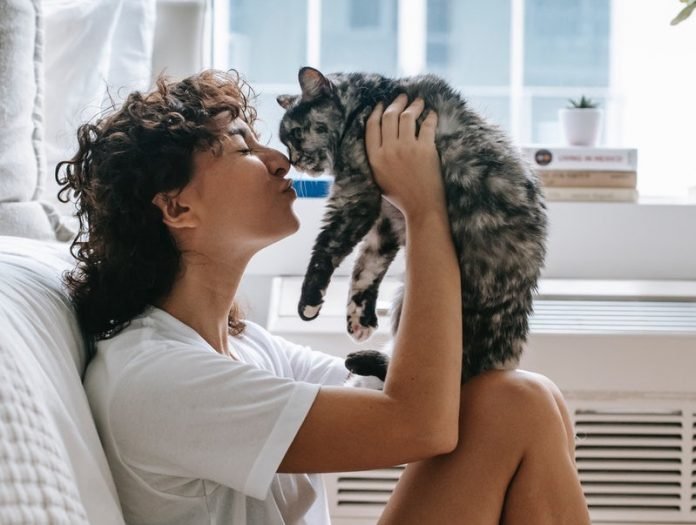
In a new study from the University of Glasgow, researchers found that people can pass COVID-19 on to their cats.
They used in-depth genetic analyses and found two cats that tested positive. Both of them were from suspected COVID-19 households.
One case involved a 6-year-old female Siamese. Last May, the cat had notable nasal and eye discharge. Swab samples were taken from the affected areas and tested for signs of respiratory infection.
Genetic sequencing of the virus found in those samples revealed that it was very similar to the sequences of isolates from (COVID-19) infected people in the same region of the U.K.
The other case involved a 4-month-old Ragdoll kitten who succumbed to severe respiratory illness in April 2020.
A post-mortem exam revealed the kitten had contracted COVID-19 after exposure to human SARS-CoV-2, the virus that causes the illness.
The team says human-to-cat transmission is common. But the variability of cases may depend on the proximity of the COVID-19 patient and the pet.
Pets in households with COVID have a good chance of testing positive for COVID. But they rarely show any clinical signs and do not require veterinary intervention.
As for whether the transmission dynamic might go the other way, the researchers cannot rule out the possibility that the virus could be transmitted from cats to humans.
But they still do not believe that cats, or dogs, are significant players in the disease ecology of COVID-19 in people, animals or the environment.
It will be important to monitor for human-to-cat, cat-to-cat and cat-to-human transmission.
If you care about COVID-19, please read studies about these people 7 times as likely to have severe COVID-19 and findings of the biggest risk factors for COVID-19 death.
For more information about COVID-19 and your health, please see recent studies about this common drug may reduce death risk in severe COVID-19 and results showing that this old drug could prevent lung damage in people with COVID-19.
The study is published in Veterinary Record. One author of the study is Margaret Hosie.
Copyright © 2021 Knowridge Science Report. All rights reserved.



